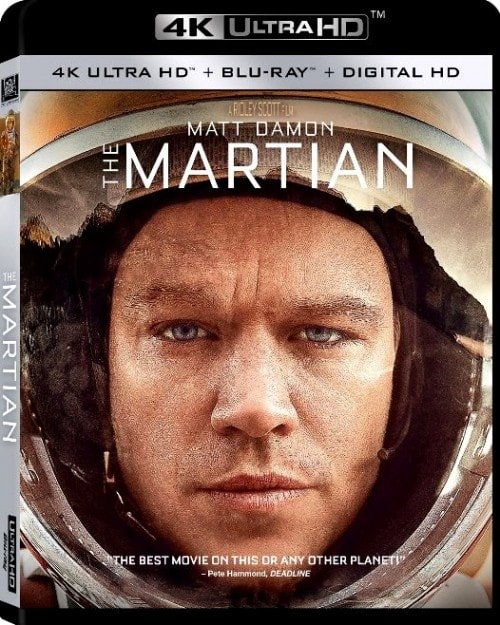


That enfolds the characters is simply reality: the time and space in which they happen to be living.Īt times it seems as if the movie's greatest artistic inspiration is not any particular previous film or novel, but the second act of " 2001: A Space Odyssey," which features endearing images of Dr. His follow-up " Blade Runner" as well, "The Martian" makes the future Strangely like " Alien," Scott's breakthrough 1979 thriller, and maybe Of all the stories you've seen about astronauts coping with the aftermath of disaster-including "Mission to Mars" and the visually superior and more aggressively melodramatic " Gravity," which is more of a self-help parable with religious overtones-"The Martian" is the most relaxed and funny, and maybe the warmest. In the process, comes up with a tone that I don't believe anyone has summoned in this genre, certainly not at this budget level. The most fascinating thing about the film is how it leans into predictability rather than make a show of fighting it. It is, but that doesn't hurt its effectiveness. I'm making it sound as though "The Martian" is predictable. The film pays thoughtful attention to basic questions like, "What do you do if the face plate of your helmet cracks?" and "How do you create a food supply on a planet that can't sustain plant life?" The short answers to those questions are, respectively, "apply duct tape" and "grow potatoes in a makeshift greenhouse fertilized with the solid waste left behind by the rest of the crew." Throughout the course of this long but never dull film, Mark makes for an affable and centered lead character-a wisecracking botanist who talks constantly to himself (and by extension the audience) in video diary entries, and sees each new crisis as a problem solving exercise, provided he can get his fear and despair under control long enough to think straight, which of course he does. Since what will happen is never in question, all that remains is "how."įortunately, the hows are cleverly envisioned by Scott and screenwriter Drew Goddard (who adapted Andy Weir's source novel, and also penned " The Cabin in the Woods" and many episodes of ABC's castaway drama "Lost"). You also know that, despite the heated discussions back on earth of how risky, time consuming and expensive a rescue mission would be, NASA will still have to stage one, and that any objections (mainly by Jeff Daniels' character, the agency's director) will be waved off in the name of doing what's right. You also know that, despite the Lone Man Against Nature plot line, there's a reason why the filmmakers cast Oscar nominee Jessica Chastain as the captain of the mission that's forced to abort its exploration of the planet's surface and leave Mark for dead-and it wasn't so that she could turn tail and head for Earth with her crew in the first ten minutes and never return. If you've ever seen a film, you know going in that things are going to turn out fine for Mark-that no studio is going to pay for a special effects driven epic about a smart, likable castaway who dies in the last five minutes. Like all the variants of "Robinson Crusoe"-including " Cast Away" and, of course, "Robinson Crusoe on Mars"-this film is about a man, Matt Damon's Mark Watney, who summons all of his ingenuity and courage to endure a seemingly impossible situation, then must deal with loneliness on top of it all. But although the outline offers no surprises, the details and the tone feel new. "The Martian," Ridley Scott's film about an astronaut surviving on a desolate planet, is at heart a shipwreck story, one that just happens to take the form of a science fiction adventure.


 0 kommentar(er)
0 kommentar(er)
